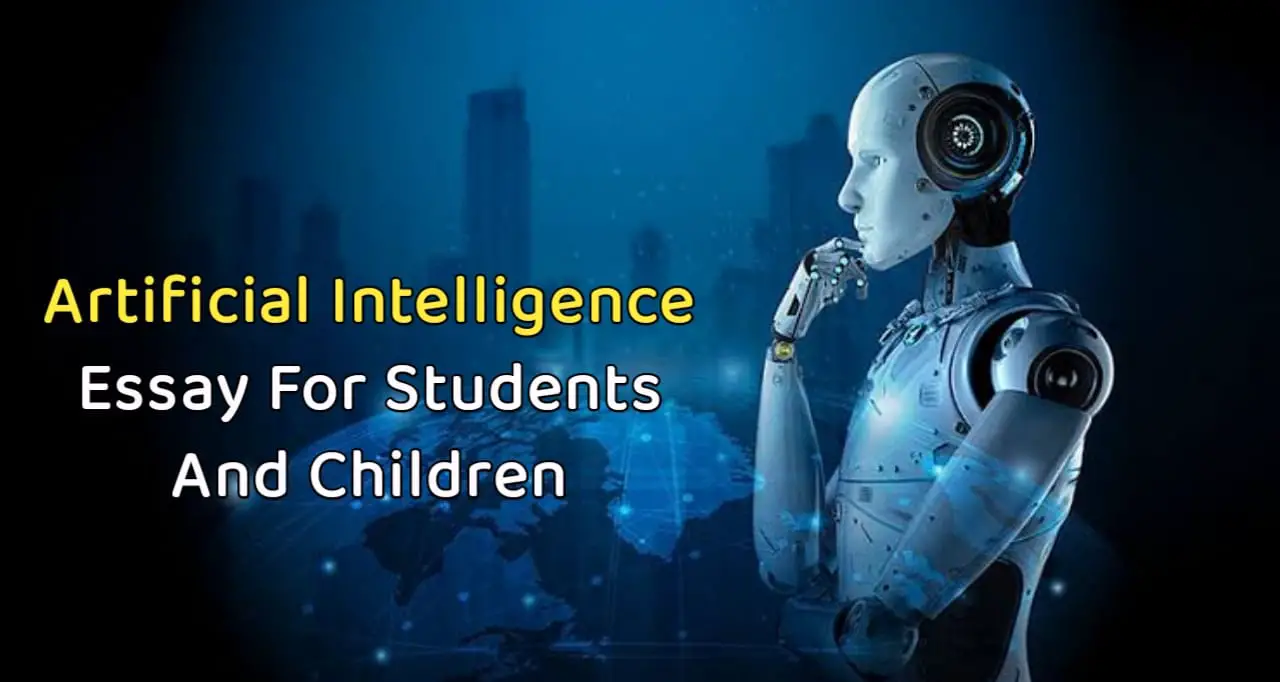Artificial Intelligence Essay For Students And Children: Artificial Intelligence (AI) has become an integral part of our daily lives, influencing how we work, learn, and communicate. In this essay, we’ll explore the basics of AI, its impact on society, and its relevance for students and children.

What is Artificial Intelligence?
Artificial Intelligence refers to the development of computer systems that can perform tasks that typically require human intelligence. These tasks include learning, reasoning, problem-solving, speech recognition, and language translation.
How Does AI Work?
AI systems learn from data, identifying patterns and making decisions without explicit programming. Machine learning and deep learning are two common approaches, mimicking the way humans learn and process information.
AI Applications in Daily Life
1. Personal Assistants
AI-driven personal assistants like Siri and Alexa make our lives easier by responding to voice commands, managing schedules, and providing information.
2. Education
AI is revolutionizing education with personalized learning platforms, adaptive assessment tools, and virtual tutors, catering to individual student needs.
3. Healthcare
In the healthcare sector, AI aids in disease diagnosis, drug discovery, and treatment planning, enhancing the efficiency and accuracy of medical procedures.
The Impact of AI on Society
1. Job Automation
As AI technology advances, concerns about job displacement arise. However, it also creates new opportunities, prompting the need for a shift in skill sets.
2. Ethical Considerations
The ethical use of AI is crucial. Discussions about bias in algorithms, privacy concerns, and accountability highlight the need for responsible development and deployment.
Releated : Gender Equality Essay
AI in Education: A Boon for Students
1. Personalized Learning
AI tailors educational content to individual student needs, addressing learning gaps and providing a customized learning experience.
2. Enhanced Teaching Tools
Teachers can use AI-powered tools to assess student performance, identify areas of improvement, and create engaging lesson plans.
3. Skill Development
Students exposed to AI technologies gain valuable skills in critical thinking, problem-solving, and adaptability, preparing them for the future job market.
Addressing Concerns: The Future of AI Education
1. Curriculum Integration
The inclusion of AI-related topics in school curricula can familiarize students with the technology, fostering a better understanding and appreciation.
2. Ethical Education
Teaching ethics in AI usage ensures that students are equipped to navigate the ethical considerations associated with this powerful technology.
Conclusion
As we navigate the age of artificial intelligence, it is essential for students and children to grasp its fundamentals. AI not only shapes our present but also molds the future. Through proper education and awareness, we can harness the potential of AI responsibly, preparing the next generation for a world where man and machine collaborate for the betterment of society.






